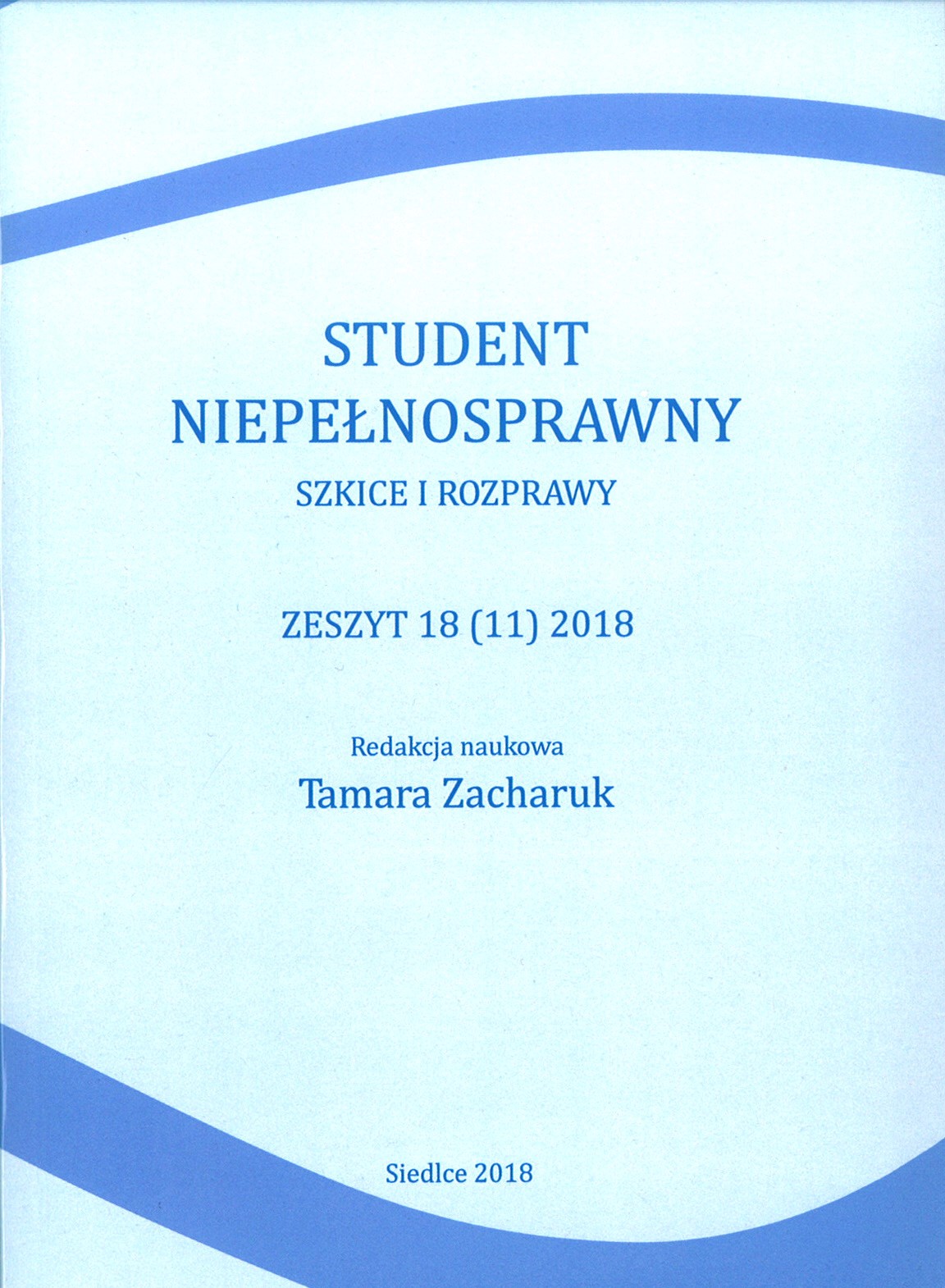Stimulation of emotional development and innovations in education of Roma pupils
Keywords:
etnic minorities, Roma people, students, humanity, innovative education methods, emotional development, education, inclusionAbstract
Upbringing and education and education of pupils of Roma origin are changing, because of the specificity of this ethnic group and the established methods of education. The most important changes are in the student-teacher relationship. The teacher is not only a educator, but also a mentor of the child's development. Teachers have to support the emotional development of the individual and to give real support in difficult situations. in modern school it is very important to raise the effectiveness of the didactic process and upbringing. Learning must be interesting and attractive for students. The feelings and experiences of every person and the spiritual dimension of life are very important. Contemporary concepts in the center of attention put development of individual human abilities and predispositions. Education of Roma pupils is the subject of many discussions, not only in Slovakia, but also in those European countries, where Roma minorities live in. Particularly noteworthy are innovative education methods aimed at Roma students, and related to inclusive education.
Downloads
References
školách. 1. vyd. Praha : Rytmus, o.s., 2007. 109 s. ISBN 80-903598-5-X.
BRIERLY, J.1996. 7 prvních let života rozhoduje. 2.vyd. Praha : Portál, 1996. 109
s. ISBN 80-7178-484-2.
DARGOVÁ, J. – ČONKOVÁ, Ľ. Materská škola ako činiteľ emocionalizácie
dieťaťa. In: Predškolská výchova. roč. 57, 2002/2003, č. 5, s. 25-28.
ISSN 0032-7220.
CARLGEN, F. 2003. Výchova k slobode. Bratislava : SPN, 2003. ISBN 80-08-
01869-0.
FŰLŐPOVÁ, E.- ZELINOVÁ, M. Rozvoj nonkognitívnych funkcií dieťaťa
v materskej škole. In: Predškolská výchova. roč. 58, 2003/2004, č. 6, 20
– 27. ISSN 0032-7220.
HAGEROVÁ, Z. Výchova založená na prosociálnom prístupe – základná cesta
formovania osobnosti dieťaťa. In: Predškolská výchova. roč.56,
2001/2002, č. 5, s. 16-18. ISSN 0032-7220.
MAŇÁK, J., ŠVEC, V. 2003. Výukové metody. Brno : Paido, 2003. 219 s. ISBN
80-7315-039-5.
KOTRBA, T. – LACINA, L. 2007. Praktické využití aktivizačních metod ve výuce.
Brno : Barrister & Principal, 2007. 186 s. ISBN 978-80-87029-12-1.
LECHTA, V. [ed.] 2010. Trandisciplinárne aspekty inkluzívnej pedagogiky. In:
Rómovia a inkluzívna pedagogika. autor : HORŇÁK, L., Bratislava:
EMITplus s.r.o., 2010. 321s. ISBN 978-80-970623-2-3.
MIŇOVÁ, M. – GMITROVÁ, V. – MOCHNÁČOVÁ, H. 2002. Prosociálna výchova
v materskej škole. 1. vyd. Prešov : Rokus, 2002. 70 s. ISBN 80-89055-
17-6.
MONTESSORI, M. 2003. Absorbujíci mysl. Praha: NSPS, 2003. ISBN 80 - 86 189 -
02- 3.
PETLÁK, E. 2004.Všeobecná didaktika. Bratislava: Iris, 2004. 311 s. ISBN 80-
89018-64-5.
RESMAN, M. 2003. Integrácia / inklúzia medzi zámerom a uskutočnením. In:
Psychológia
a patopsychológia dieťaťa. roč. 38, č. 2, s. 161-174. ISSN 055-5574.
ŠIMOVÁ, G. – DARGOVÁ, J. 2001. Tvorivé dieťa predškolského veku. 1. vyd.
Prešov : Rokus, 2001. 77 s. ISBN 80-89055-11-7.
Štátny vzdelávací program pre 1. a 2. stupeň základnej školy v Slovenskej republike.
2008.
VARHCHOLOVÁ, M. - MALIŇÁKOVÁ, M. - MIŇOVÁ, M. 2003. Pedagogická
diagnostika a individuálny vzdelávací plán v podmienkach materskej
školy. 1. vyd. Prešov : Rokus, 2003. 67 s. ISBN 80-89055-34-6.
ZELINA, M. 1996. Stratégie a metódy rozvoja osobnosti dieťaťa. Bratislava: Iris,
1996. 230 s. ISBN 80-967013-4-7.
ZELINKOVÁ, O. 1997. Pomoz mi, abych to dokázal. Praha : Portál, 1997. 197 s.
ISBN 80-7178-0715.




